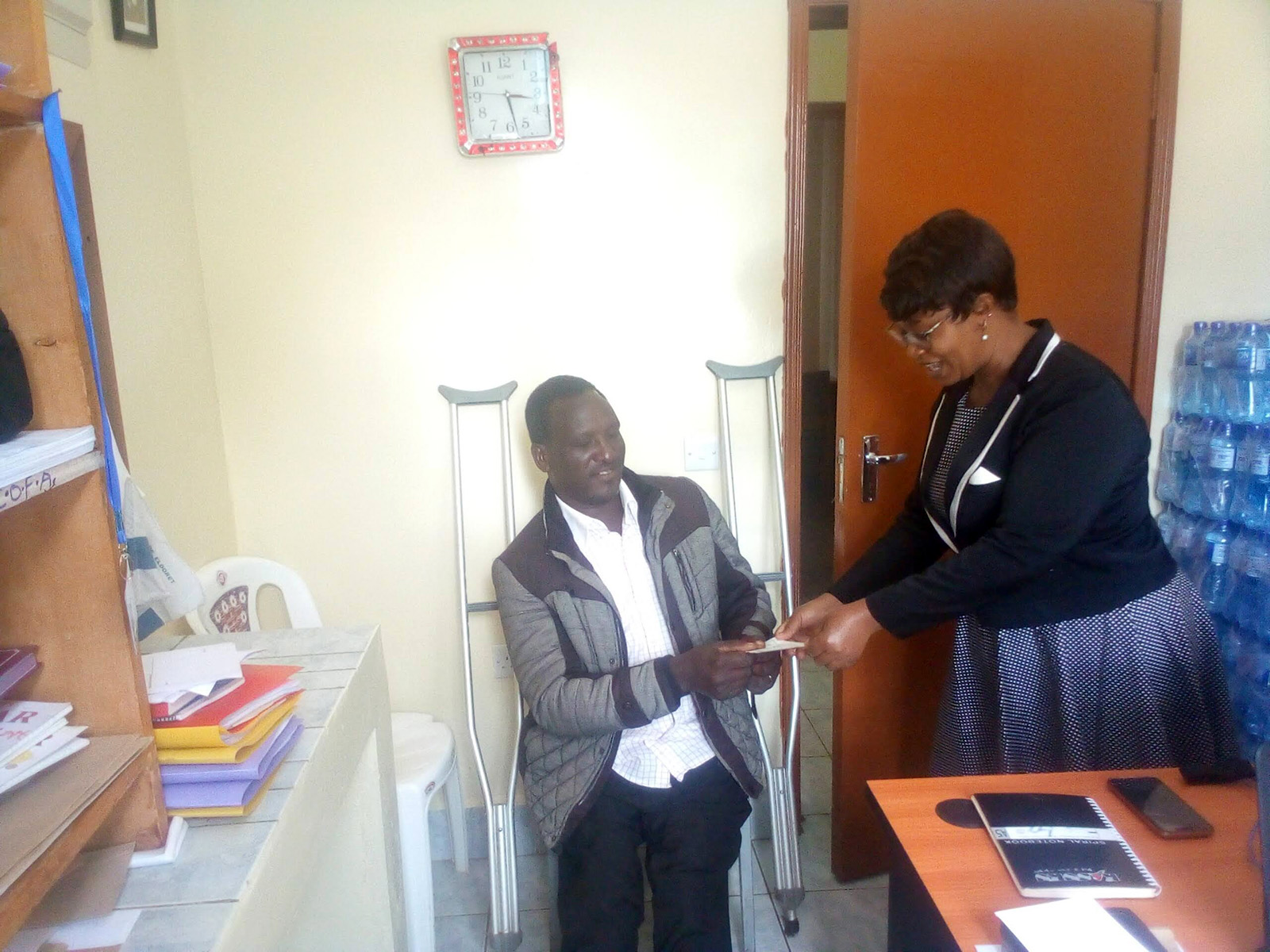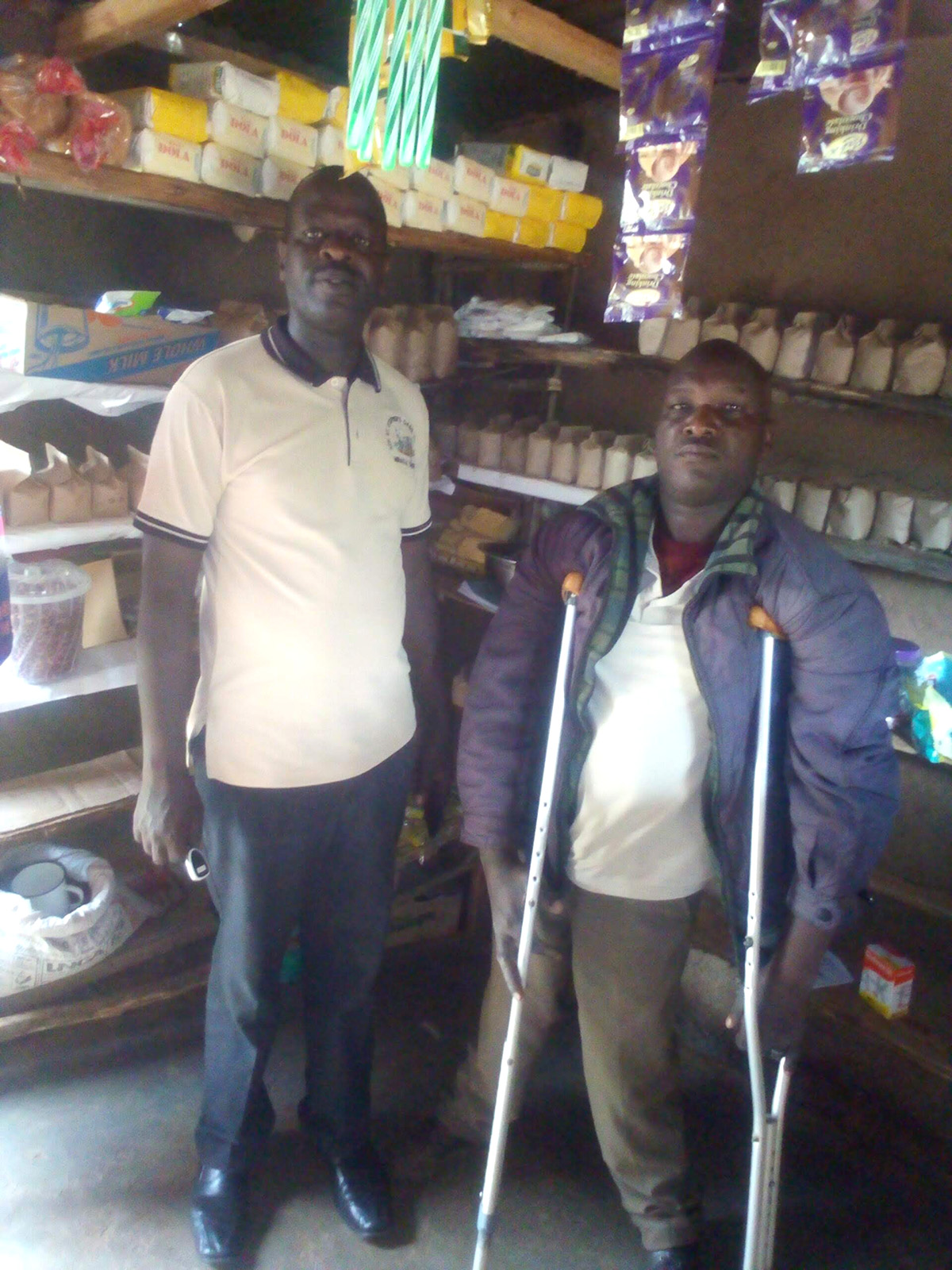People living with a disability empowered to diversify and increase their incomes
Eldoret project enables people living with a disability to diversify and increase their incomes
Gabriel lives in a rural area, 15 kms from Eldoret town. He is a member of All Saints Sarma local church, St. Barnabas’ in Kipkenyo Parish. He is 42 years old, married to Daisy and they are blessed with three young children.
Gabriel has worked as a shoe repairer for the last eight years at the nearby Kipkenyo shopping centre.
As Gabriel is a person living with a physical disability, his parish vicar, the Rev’d Kennedy Mirmet, recommended he approach AID’s partner in the Anglican Diocese of Eldoret, the Community Based Rehabilitation (CBR) Program, to enquire about their potential support with a low-interest loan, business mentoring and training. The CBR made an assessment, and Gabriel was able to join the program as a direct participant.
Gabriel says, “After receiving training in business skills, I quickly passed this training in simple bookkeeping and business management onto my wife, Daisy. She was so interested that both she and I set up a shop in the compound where we live, with the little savings we had. I then applied for a small business loan from the Economic Empowerment project of 20,000 Kenya shillings (about $265).
“The shop is doing well, with the small profit providing for some of our family’s needs and enabling both restocking and the introduction of new stock. We are both determined to grow our shop business to increase our income.
“I still do shoe repairs. This provides me with additional income to provide for the family”, Gabriel concludes.
The project has already provided small business loans, mentoring and training to almost 30 people with disabilities, or to the families of children with a disability.
Nelly Cherono Maiyo, the Project Coordinator, notes that 27 of the participants supported to date continue to be engaged in viable business activities, after receiving a small loan and basic book-keeping and financial training, together with mentoring, from the project. Taken as a whole, these 27 people have increased the value of their stock by 70%. 20 of those participants have also increased their incomes by at least 50%, and some have been able to pay school fees for their children for the first time. These 20 have begun to repay their loans to the project so that other people living with disabilities may also be supported in a similar way.
AID thanks Gabriel and Daisy for telling their story, and the Diocese of Eldoret’s Economic Empowerment Project for their commitment to supporting persons with disabilities living in their diocese and community.
Thanks also to those who support this project through their prayers and with donations.

Gabriel receives his loan cheque from the Administrator of Eldoret’s Community Based Rehabilitation Centre, Rev’d Grace. © Diocese of Eldoret. Used with permission.
